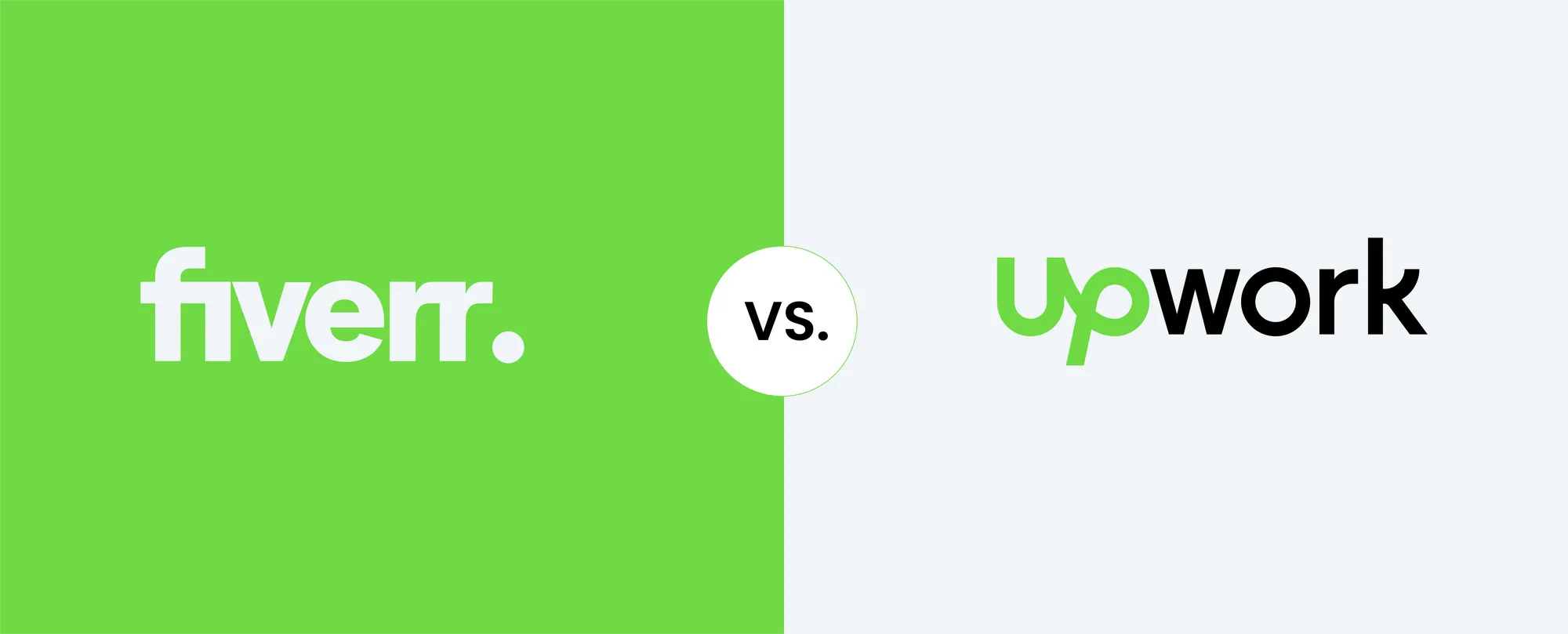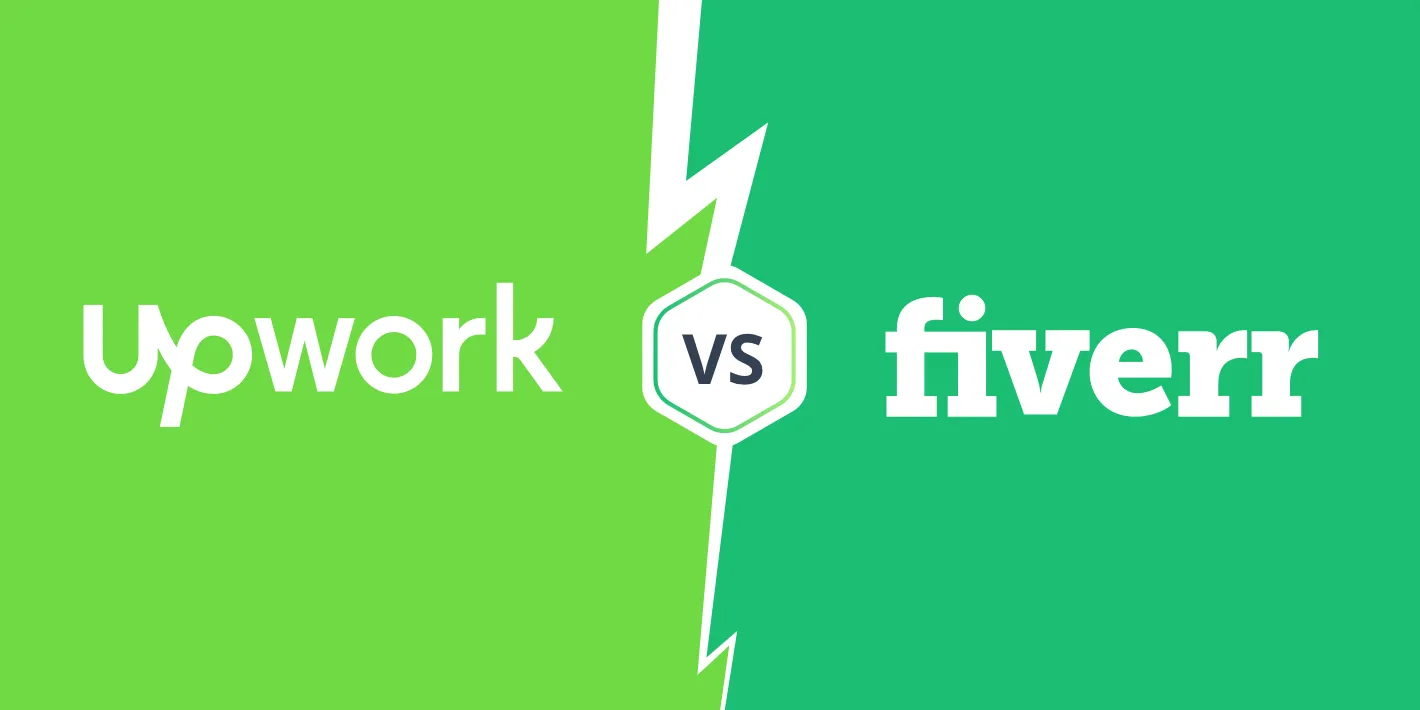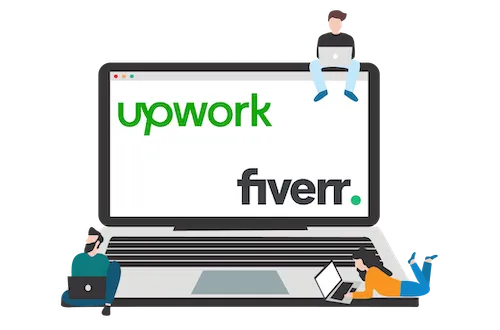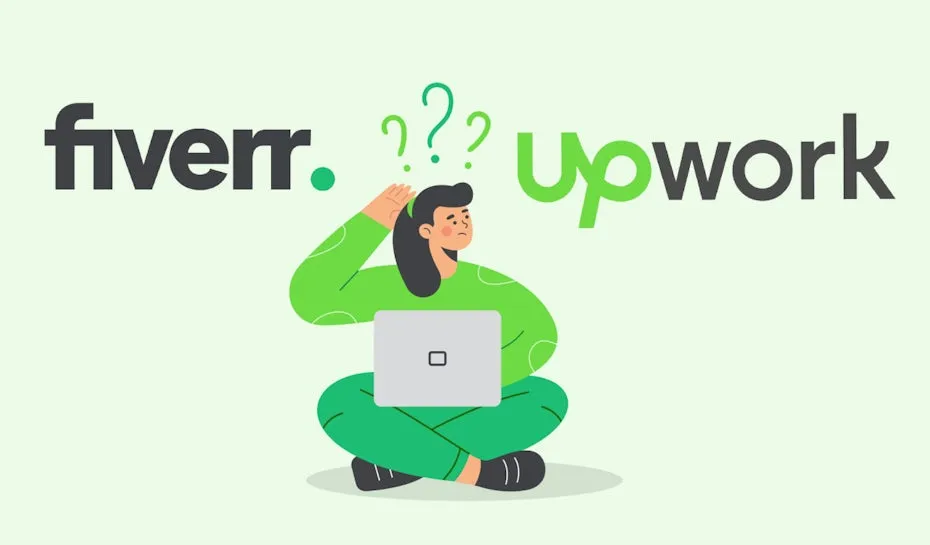Freelancing has become an increasingly popular way for people to earn a living, and platforms like Upwork and Fiverr are at the forefront of this trend. But are they really the same? While both offer opportunities for freelancers to connect with clients, they do have some key differences. In this post, we’ll dive into what makes each platform unique, starting with an overview of Upwork.
Overview of Upwork

Upwork is one of the largest online freelance marketplaces, connecting businesses with talented professionals across the globe. Established in 2015, it was born from a merger between two earlier platforms, oDesk and Elance. Upwork facilitates a wide variety of projects — from web development to graphic design, writing to marketing, and so much more.
One of the standout features of Upwork is its flexibility. Here are some key aspects to consider:
- Job Types: Upwork offers both hourly and fixed-price projects. This means that freelancers can choose how they want to charge for their work according to their preferences and the nature of the project.
- Client Interaction: Upwork allows for direct communication between freelancers and clients, enabling detailed discussions regarding project scope, deadlines, and expectations.
- Escrow System: Payments are secured through an escrow system. This means that funds are held by Upwork until the project is completed, ensuring that freelancers get paid for their work.
Furthermore, Upwork provides various tools to help freelancers manage their projects effectively. For instance, you can track time using built-in software and even access a work diary to detail progress. Over time, building a solid profile with client reviews can lead to increased visibility and better job opportunities. But keep in mind that Upwork does charge service fees, which can range from 5% to 20% depending on total earnings from a client.
Overall, Upwork caters to a wide range of professionals and projects, making it a versatile platform in the freelance marketplace. With its focus on long-term relationships and a structured approach, it appeals to both freelancers looking for stability and clients seeking reliable talent.
Also Read This: How Much I Make from Fiverr
Overview of Fiverr

Fiverr is an online marketplace that primarily focuses on connecting freelancers with clients who need specific projects completed. Founded in 2010, it has quickly become one of the most popular platforms for freelance work. Unlike traditional job sites, Fiverr allows freelancers (called "sellers") to offer their services, known as "gigs," starting at just $5. This pricing model makes it approachable for clients with varying budgets.
The services offered on Fiverr are vast and diverse, ranging from graphic design, content writing, digital marketing, video editing, to even quirky offerings like voiceovers and illustrations. Sellers can create detailed profiles showcasing their skills, previous work, and client reviews, which helps clients make informed decisions.
One of Fiverr's standout features is its user-friendly interface. Clients can easily search for services by category, price range, or seller ratings. Additionally, Fiverr promotes a gig economy where freelancers can easily showcase their unique skills, helping to nurture a community of creators. Here are some key aspects to consider:
- Gig-based Structure: Sellers create gigs that outline their services, pricing, and delivery time.
- Scalable Pricing: While gigs start at $5, sellers can offer multiple pricing tiers based on the complexity and scope of services.
- Simple Searching: Users can filter gigs by categories, delivery times, and budget.
- Feedback System: Client reviews play a crucial role in determining seller credibility and attracting new clients.
Also Read This: How to Pay on Fiverr from Pakistan
Key Differences Between Upwork and Fiverr

While both Upwork and Fiverr serve as platforms connecting freelancers with clients, they operate on different models and have unique features that cater to various needs.
| Aspect | Upwork | Fiverr |
|---|---|---|
| Service Type | Wide range of jobs, including long-term projects. | Predominantly short-term gigs with fixed pricing. |
| Payment Structure | Hourly or fixed-price contracts. | Gig-based pricing with starting rates as low as $5. |
| Client Engagement | Clients post jobs, and freelancers bid on them. | Clients browse gigs and purchase directly. |
| Skill Level | Caters to various skill levels, including professionals. | Accessible to beginners and seasoned freelancers alike. |
| Platform Fees | Varies; typically a percentage of project cost. | 20% service fee on earnings above $40. |
Understanding these differences can help you choose the right platform for your freelance needs—whether you’re looking for quick, one-off gigs or long-term projects that demand ongoing collaboration. Each platform has its pros and cons, so it's essential to consider what suits you best.
Also Read This: How to Improve Your Average Response Time on Fiverr
Similarities Between Upwork and Fiverr

When it comes to finding freelance work or hiring professionals for projects, both Upwork and Fiverr have become household names. But what exactly do they share in common? Here are a few key similarities that these platforms boast:
- Freelance Marketplace: Both Upwork and Fiverr serve as platforms where freelancers can showcase their skills and connect with clients. Essentially, they act as intermediaries, facilitating project-based work.
- Variety of Services: Whether you need graphic design, writing, programming, or digital marketing, both platforms offer a diverse range of services. You can find talented freelancers in nearly every industry imaginable.
- User Profiles and Reviews: Both Upwork and Fiverr allow freelancers to create detailed profiles showcasing their skills, experience, and past work. Additionally, clients can leave reviews and ratings, providing social proof of the freelancer's capabilities.
- Secure Payment Systems: Each platform has built-in payment protections to ensure that freelancers get paid for their work and that clients only pay for satisfactory deliverables.
- Flexible Work Arrangements: Freelancers can choose to work on short-term projects or long-term contracts, offering flexibility that can cater to a variety of lifestyles and schedules.
So, while Upwork and Fiverr cater to slightly different audiences and have varied operational structures, their core purpose remains the same: to connect freelancers with potential clients. This shared objective is where their similarities shine the brightest.
Also Read This: How to SEO Optimize Your Fiverr Gig
Which Platform is Better for Freelancers?
Deciding which platform is better for freelancers—Upwork or Fiverr—depends largely on individual working styles, types of services offered, and personal goals. Here's a breakdown to help you determine which might suit you best:
| Criteria | Upwork | Fiverr |
|---|---|---|
| Commission Fees | Up to 20% based on total earnings per client | 20% flat fee on all transactions |
| Job Types | Long-term projects and hourly contracts | Fixed-price services starting at $5 |
| Client Interaction | More negotiation and collaboration involved | Quick transactions with preset service offerings |
| Target Audience | Professional freelancers seeking serious clients | Casual gigs and quick tasks for freelancers |
| User Experience | Detailed proposals and profile setup | Streamlined service listings and order placements |
In summary, if you’re a freelancer who prefers flexibility, long-term contracts, and more in-depth client relationships, Upwork might be a better fit for you. On the other hand, if you prefer a simpler, more structured environment that allows for quick transactions, Fiverr could be the way to go. Ultimately, it’s essential to assess your individual needs and goals to find the right platform that works for you.
Also Read This: Top Fiverr Sellers for Blog Writing in 2024
Which Platform is Better for Clients?
When it comes to choosing between Upwork and Fiverr as a client, the decision often hinges on a few key factors: the type of work needed, budget, and preferred level of interaction with freelancers. Let’s unpack this a bit.
*Upwork tends to be more suitable for clients looking for a variety of skill levels and long-term collaboration. You can post detailed job listings and receive proposals from freelancers, which allows you to choose based on qualifications and previous experience. The flexibility of hiring hourly or fixed-price contracts gives clients the option to structure payments as needed. Here are some pros for clients using Upwork:
- Access to a wider pool of experienced freelancers.
- Ability to conduct interviews before hiring, providing a chance to gauge the freelancer's fit.
- Support for long-term projects with multiple phases.
On the other hand, Fiverr* excels in its simplicity and fast turnaround for smaller projects. Clients can choose from pre-packaged services, called “gigs,” allowing for quick decisions without sifting through multiple proposals. It’s ideal for short-term tasks or one-off projects, such as graphic design, social media posts, or copywriting. Here’s what makes Fiverr appealing for clients:
- Speed and straightforwardness in hiring.
- Fixed pricing, which aids in budgeting.
- Access to freelancer reviews and ratings to assess quality.
Ultimately, the better platform for clients really depends on the specific needs of the project. Are you after extensive collaboration or just a quick fix? Both platforms have their strengths, so it’s essential to consider your priorities.
Conclusion
So, are Upwork and Fiverr the same? The short answer is no! While both platforms aim to connect freelancers with clients, they cater to different needs and styles of engagement. Upwork is your go-to for in-depth, nuanced projects where you might desire a more hands-on approach with freelancers. It supports long-term relationships, encourages detailed conversations, and offers flexibility in pricing.
On the other hand, Fiverr is designed for speed and convenience. If you need a graphic designed yesterday or a catchy tagline without the fuss, Fiverr delivers that with an effortless process of browsing gigs and hiring directly. Its focus on simplicity and quick transactions makes it a fantastic choice for clients searching for specific deliverables.
In conclusion, the choice between Upwork and Fiverr depends on your project’s complexity, your budget, and how involved you want to be in the hiring process. Both platforms can be incredibly useful, but understanding their unique strengths can help you make an informed decision that best fits your needs. Happy freelancing!



